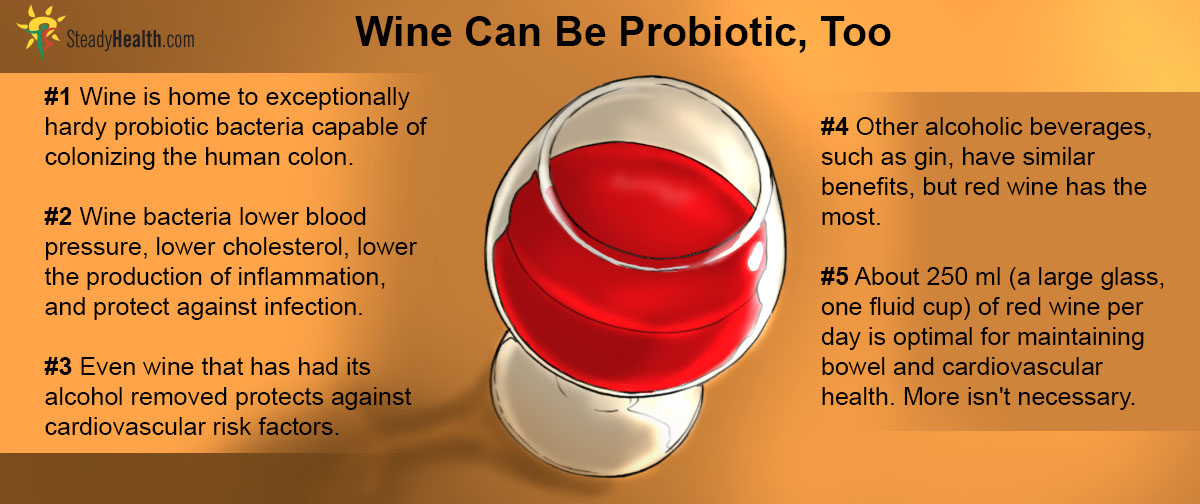Over the last 50 years, yogurt has become the world's most popular health food. In the 1960's, the leading yogurt maker in the United States ran television advertisements featuring an interview with a 90-year-old yogurt eater "and his mother." About 2005, makers of yogurt began extolling the virtues of the probiotic bacteria in their product, the most widely advertised product, ironically, containing no actual live cultures of the Lactobacillus bacteria that exert beneficial health effects. And more recently, "Greek" yogurt, with its thicker curd, has become all the rage. It isn't enough for yogurt to be good for you. It has to taste good and have the right feel in your mouth.
Presumably these non-consumers of dairy products would also benefit from the daily dose of healthy bacteria, but yogurt causes so many unpleasant gastrointestinal symptoms (bloating, diarrhea, flatulence) that it is out of the question. There are fermented yogurt products made with soy and coconut, and with goat's milk for people who are allergic to cow's milk, but they aren't yet widely available in supermarkets. For this reason, researchers have started looking for alternative sources of probiotics for daily consumption.
Wine to the Rescue
Researchers in Spain have identified 11 strains of live bacteria in wine, including the health-friendly Lactobacillus bacteria, as well as Oenococcus (literally, "wine bacteria") and Pediococcus, the kind of bacteria that release a buttery flavor, especially in Chardonnay. Researcher Dolores González de Llano of Universidad Autónoma de Madrid told Live Science "Up to now, many studies have reported that the best [foods] to deliver probiotics are dairy fermented products, so that the probiotic properties of wine-related [Lactobacillus] were hardly studied. But nowadays there is a need for novel and nondairy probiotics, from the increasing number of lactose-intolerance cases occurring in the world population, coupled with the unfavorable effect of cholesterol contained in fermented dairy products."
Why Are Probiotic Bacteria Important?
Probiotic bacteria make a huge difference in digestive health. Every healthy person's digestive tract contains trillions of microorganisms. There are more bacterial cells in the human body than there are human cells. One of the important functions of probiotic bacteria is to make sure that pathogenic (disease-causing) bacteria do not take over.
Another function of probiotic bacteria is simply to take up space.
Without these bacteria, stools become harder to pass and constipation results.
See Also: Wine Not? The Health Benefits And Dangers Of Your Wine Drinking Habit
Probiotic bacteria also provide nutrients to the human body. Friendly bacteria feed on fiber. In the process of digesting fiber for their own needs, they release small amounts of glucose for our needs. For this reason, a bowl of bran cereal can provide as much energy as a bowl of ice cream, if there are healthy bacteria in the colon. These bacteria also play a role in creating vitamin K, which is essential to the function of the bones and blood vessels, and some release butyric acid, which protects the lining of the colon against cancer.
What's Special About The Probiotics In Wine?
The friendly bacteria that thrive in wine are an especially hardy breed. Surviving in a high-alcohol medium is similar to surviving in the human stomach.

How Scientists Know Wine Bacteria Can Make a Difference
The previously mentioned researchers at the Universidad Autónoma de Madrid tested bacteria from wine against some of the enzymes and chemicals produced by the human digestive tract. They found that probiotic bacteria from wine were not dissolved by lysozyme, an enzyme in human saliva that breaks down the cell walls of potentially disease-causing microorganisms along with the cell walls of many potentially friendly bacteria. This meant that wine bacteria could survive at least until they reach the stomach.
Then the researchers tested the bacteria's ability to withstand gastric acid, the acid released by the lining of the stomach to digest food. The bacteria survived, which meant they could get as far as the small intestine. To assess survivability in the intestines, the researchers treated the bacteria with bile, and, once again, they survived, which suggests that probiotics from wine can last long enough to reach the colon, where they can do their work.
The Kinds of Difference Wine Bacteria Can Make
But what can wine bacteria really do for you? To find out, another group of scientists at the Laboratorio de Investigaciones Biomédicas del Hospital Virgen de la Victoria in Málaga, Spain, recruited 10 healthy male volunteers to drink a cup (240 ml) of red wine every day for 20 days (not a tough assignment), then to drink a up of red wine with the alcohol removed every day for 20 days, and finally to drink a shot (100 ml) of gin every day for 20 days. The investigators measured various health parameters.
Drinking either regular red wine or alcohol-free red wine resulted in:
- Significantly lower blood pressure,
- Significantly lower LDL cholesterol,
- Significantly higher HDL cholesterol,
- Significantly lower C-reactive protein (a measure of vascular inflammation), and
- Increases in the overall number of health bacteria in the colon, even of strains of bacteria that are not found in wine. The reduction in inflammation was correlated with increases in a strain of probiotic bacteria known as Bifidobacteria.
See Also: Health Benefits Convincing Beer Drinkers To Switch Over To Wine
It doesn't take a lot of wine to make a real difference in health. Just a glass a day seems to be enough to encourage the growth of health bacteria and to generate a variety of cardiovascular benefits. Of course, if you are alcoholic, you will have to get your probiotic supporter from alcohol-free red wine, or from probiotic supplements. But red wine grape products seem to be as beneficial as yogurt.
- O'Connor A. Really? Red Wine Is Good for the Stomach. New York Times. 14 May 2012.
- Queipo-Ortuño M, Boto-Ordóñez M, Murri M, Gomez-Zumaquero JM, Clemente-Postigo M, Estruch R, Cardona Diaz F, Andrés-Lacueva C, Tinahones FJ. Influence of red wine polyphenols and ethanol on the gut microbiota ecology and biochemical biomarkers. Am J Clin Nutr. 2012 Jun. 95(6):1323-34. doi: 10.3945/ajcn.111.027847. Epub 2012 May 2.
- Photo courtesy of Joe Shlabotnik by Flickr: www.flickr.com/photos/joeshlabotnik/2294658165
- Mindmap by SteadyHealth.comWine.jpg



Your thoughts on this